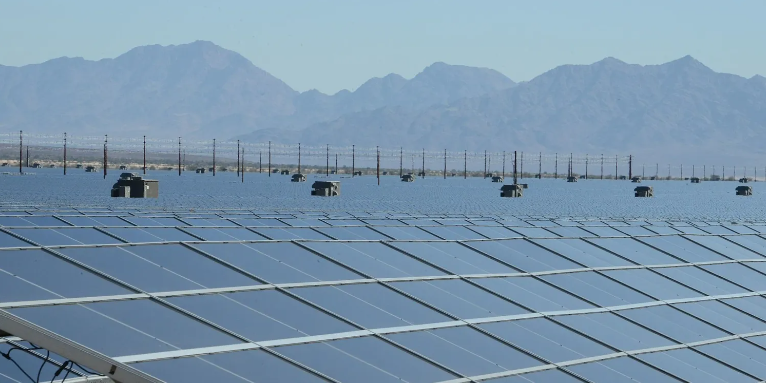
The US Department of Commerce determined that five Chinese solar companies have been dodging US duties. Here’s why that could impede the growth of US solar.
The Commerce solar investigation, explained
As Electrek reported in May 2022, the Department of Commerce (DOC) launched an investigation of whether Southeast Asian solar cell manufacturers are using parts made in China that would normally be subject to a tariff.
The DOC has now concluded its investigation and announced on Friday that five out of eight Chinese solar companies it’s been probing are “shipping their solar products through Cambodia, Malaysia, Thailand, and/or Vietnam for minor processing in an attempt to avoid paying antidumping and countervailing duties.”
The DOC identified the five Chinese companies that attempted to dodge US duties by processing in Southeast Asia as:
BYD Hong Kong, in Cambodia
Canadian Solar, in Thailand
Trina, in Thailand
Vina Solar, in Vietnam
New East Solar, in Cambodia
This means that manufacturers’ products will be subject to additional import duties if they go against Obama-era solar tariffs.
The DOC noted that a ban is not going to be implemented on products from Cambodia, Thailand, and Vietnam:
This does not constitute a ban on imports from those countries. Companies in these countries will be permitted to certify that they are not circumventing the [antidumping and countervailing duties] orders, in which case the circumvention findings will not apply.
The impact of the DOC’s ruling
The majority of the solar industry, as well as President Joe Biden, strongly opposes this ruling because of potential damaging impacts such as higher costs, more solar supply chain snarls, and US job losses.
A report by Wood Mackenzie found that the circumvention petitions could eliminate 16 gigawatts of panels from the US supply chain.
So in June 2022, Biden waived tariffs for 24 months on solar panels made in Southeast Asia in response to the investigation. He also invoked the Defense Production Act to spur on US solar panel and other clean energy manufacturing. That way, domestic production could accelerated without impacting the DOC investigation.
The US solar industry relies on imported solar panels to meet growing demand while the US establishes a domestic supply of solar components. Nearly 75% of solar panels currently imported to the US come from Southeast Asia.
Abigail Ross Hopper, president and CEO of the Solar Energy Industries Association (SEIA), said:
The United States is experiencing a $20 billion solar manufacturing renaissance because of policies in the Inflation Reduction Act that incentivize private investment in this country. However, it will take at least 3-5 years to ramp up domestic solar manufacturing capacity and the global supply chain will be vital in the short term. This case will just make it harder for American businesses to keep deploying, financing, and installing solar power.
More than 263,000 Americans rely on their solar and storage job to feed their family and pay the bills, and this case unnecessarily puts their livelihood at risk.
Biden’s waiver expires in June 2024, and that’s when the assessment of duties will begin. We at Electrek will continue to watch this DOC ruling and its impact on the solar industry.
Photo: First Solar Desert Sunlight Solar Farm/US Department of the Interior
To limit power outages and make your home more resilient, consider going solar with a battery storage system. In order to find a trusted, reliable solar installer near you that offers competitive pricing, check out EnergySage, a free service that makes it easy for you to go solar. They have hundreds of pre-vetted solar installers competing for your business, ensuring you get high quality solutions and save 20-30% compared to going it alone. Plus, it’s free to use and you won’t get sales calls until you select an installer and you share your phone number with them.
Your personalized solar quotes are easy to compare online and you’ll get access to unbiased Energy Advisers to help you every step of the way. Get started here.